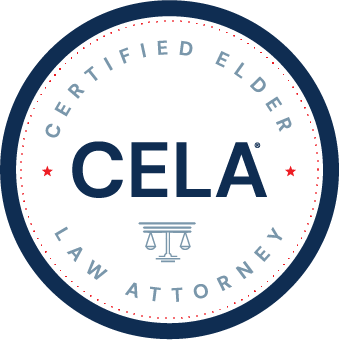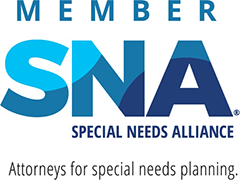Tax Planning for Families with Special Needs
As tax-paying season approaches, there are a number of tax obligations and deduction opportunities that families with special needs should bear in mind. It's important to realize that the investment income generated by funds deposited in a special needs trust (SNT) are taxable, yet the details differ, depending upon the type of trust in question.
First Party SNTs
A first party SNT is a trust established using funds that belong to an individual with a disability. Most commonly, the funds originate from a personal injury settlement or inheritance. Any investment income from the trust will generally be taxable to the special needs beneficiary.
In most states, first party SNTs are automatically classified as "grantor" or "pass-through trusts," meaning that instead of being taxed at the standard rate for trusts--37 percent-- the beneficiary's tax rate will apply. This is permitted since the trust has been established with the beneficiary's own assets.
Third Party SNTs
A third party SNT is established by a parent, grandparent or other third party for the benefit of an individual having a disability. In this case, the income will be taxed to the creator of the trust unless distributions are made for the benefit of the beneficiary. All distributions made during the year are deductible to the trust and income to the beneficiary.
It's important to note that SNT-generated investment income does not affect eligibility for means-tested government benefits such as SSI or Medicaid. For more detailed information concerning the taxation of SNTs, visit Taxes and Special Needs Trusts.
Tax Deductions and Credits
Families that include children with special needs are eligible for a variety of tax deductions. It's important to note that adult children with disabilities can qualify as dependents if parents provide more than half of their support and their personal income is less than the exemption to be applied.
Deductions to be considered include:
- Health expenses totaling more than 7.5 percent of adjusted gross income. Don't forget to include evaluations and the costs of special education such as tuition, tutoring and transportation.
- Attendance at medical conferences and seminars related to the child's diagnosis.
- Unreimbursed work expenses for an individual with disabilities. This might include an attendant, adaptive equipment or special transportation arrangements. The advantage of deducting adaptive equipment under this category rather than as a health expense is that the 7.5 percent threshold does not apply.
In addition, families can claim a tax credit to offset costs for child and dependent care. If the individual having a disability is 65 or older and filing a personal tax return, an "elderly disabled" credit is available.
Soon, it will be time to prepare and file your taxes. Since individual situations vary and tax issues can quickly become complex, it's recommended that families with special needs seek the advice of an attorney with tax expertise.












